Retro Replay Review
Gameplay
Tropico’s gameplay strikes a satisfying balance between city-building simulation and political strategy. From the moment you step into the role of El Presidente, you are given free rein to develop farms, industries, and infrastructure, all while keeping a watchful eye on your coffers. The game’s layered economic systems—ranging from cash crops like sugar and tobacco to tourism and oil—allow you to tailor your development strategy to your preferred playstyle. Whether you’re focused on maximizing exports for quick revenue or building a sustainable economy through tourism and local consumption, Tropico offers depth without overwhelming complexity.
(HEY YOU!! We hope you enjoy! We try not to run ads. So basically, this is a very expensive hobby running this site. Please consider joining us for updates, forums, and more. Network w/ us to make some cash or friends while retro gaming, and you can win some free retro games for posting. Okay, carry on 👍)
Beyond simple city management, Tropico weaves in an engaging political dimension. You can pass edicts that curry favor with specific social factions—such as granting free medical care to please the elderly or imposing curfews to appease the military. The dynamic approval ratings of the various factions (capitalists, intellectuals, religious, environmentalists, and more) mean that every action has political consequences. You’ll find your inbox filling up with requests for housing, workplace conditions, or even help with family problems, and you must decide whether to accommodate these demands or risk civil unrest.
Citizen simulation is another standout feature. Each Tropican has a name, job, skill level, and unique set of needs that influence their mood and productivity. They travel through town going to work, school, church, or bars, and their daily routines paint a lively picture of island life. Keeping your citizens content often means building entertainment venues, religious buildings, or educational facilities, which in turn can improve workforce efficiency and political stability. If workers get overworked or underpaid, you’ll see strikes and riots, so maintaining a fine balance is crucial.
Tropico’s mission structure offers both guided scenarios and open-ended sandbox play. Story-driven missions come with specific goals—such as hitting export quotas or surviving an assassination attempt—while the sandbox mode removes political and financial constraints for a pure creative experience. The adjustable game speed and difficulty levels ensure that both newcomers and seasoned tycoons can find a challenge that fits their style. This blend of structured objectives and free-form play gives Tropico strong replay value.
Graphics
Visually, Tropico leverages an isometric 3D engine inherited from Railroad Tycoon II, and the result is a charming, colorful island that bursts with character. The lush green hills, sandy beaches, and turquoise waters immediately evoke a tropical paradise. Trees sway gently in the breeze, clouds drift overhead, and occasional thunderstorms punctuate the serene environment with dramatic flair. It’s a world that feels alive, and the changing weather patterns aren’t just for show—they can impact crop yields and worker commute times.
The UI is intuitively designed, with informative icons and overlays that help you make quick decisions. Resource meters, happiness gauges, and budget charts are all accessible via drop-down menus or quick keys, ensuring that you can monitor your island’s health without wading through clunky interfaces. Building placement is handled smoothly, with color-coded outlines indicating whether a chosen site is valid or obstructed. When you rotate the isometric view, you get a clear perspective on how your buildings fit together in the tropical landscape.
Character and building models may not be hyper-realistic by modern standards, but they convey plenty of personality. Citizens stroll through town in period-appropriate attire, and their animated behaviors—chatting outside bars, attending church services, and protesting in the town square—add a layer of immersion that goes beyond static icons. Industrial buildings puff smoke, highways fill with busses and cars, and construction sites spring to life with cranes and bulldozers, all reinforcing the feeling that Tropico is a living, breathing island nation.
Performance-wise, Tropico runs smoothly on modest hardware, reflecting its 2001 release date. Load times are brief, and even with a bustling city of hundreds of citizens, frame rates remain steady. Given the game’s age, expectations for cutting-edge graphics should be tempered, but the art direction and attention to environmental detail ensure that Tropico remains visually appealing to new players.
Story
While Tropico isn’t driven by a linear narrative in the traditional sense, its campaign and mission-based structure provide thematic cohesion. You begin as a newly “elected” leader in the Cold War era, and each mission delivers context through tongue-in-cheek newspaper headlines, radio broadcasts, and humorous minister reports. These narrative devices ground your objectives—whether it’s escaping a US embargo, repelling revolutionaries, or balancing Soviet and American interests—within a satirical take on tropical dictatorships.
The game’s scripts and event text are peppered with witty commentary and cultural references, injecting a light-hearted tone into otherwise serious matters like civil unrest and economic collapse. Ministers complain about budget cuts, foreign superpowers demand favors, and dissidents call for reform. Your responses to these events shape the island’s story, and each choice pushes you toward a unique outcome: a prosperous republic, a repressive police state, or even a popular socialist utopia.
Individual citizens also have mini-storylines that unfold over time: a young graduate might struggle to find a job until you invest in education, or a corrupt official could embezzle funds, leading to a scandal. These micro-narratives add depth to the broader political saga, reminding you that your decisions affect real people—at least within the confines of Tropico’s satirical vision. Though there’s no single protagonist beyond “El Presidente,” the island itself becomes the star, and you get to write its history.
The absence of a rigid storyline allows for creative freedom. You decide how the political drama unfolds, whether you cling to power through gimmicks like mandatory photo-ops or build medical clinics and schools to win genuine loyalty. This open-ended narrative approach means no two Tropico playthroughs feel identical, and it encourages experimentation with different leadership styles.
Overall Experience
Tropico stands out as a unique blend of city-builder, political sim, and lighthearted satire. Its approachable learning curve makes it easy for newcomers to get started, while the layered economic and political systems provide veterans with plenty of strategic depth. Whether you’re meticulously planning a sugar monopoly or gleefully imposing authoritarian edicts, the game adapts to your chosen path and makes each decision feel impactful.
The replayability is high, thanks to the variety of maps, random island generation, and adjustable difficulty settings. You can tackle the main missions for a guided challenge, then switch to sandbox mode for pure creativity. The faction system ensures that even on a familiar map, your playthrough will change based on which groups you choose to support or suppress. Unexpected events—like hurricanes, plagues, or foreign interventions—add unpredictability, keeping you on your toes and maintaining an atmosphere of dynamic tension.
While some may find the graphics dated or the AI occasionally predictable, these minor drawbacks are outweighed by the game’s charm and depth. Tropico’s humor, combined with its robust simulation mechanics, make for an engaging experience that rewards both careful planning and whimsical experimentation. It’s a title that invites you to explore different approaches to leadership and challenges you to maintain a delicate balance between prosperity, popularity, and personal enrichment.
Overall, Tropico remains a classic in the city-building genre. Its unique setting, charismatic presentation, and strategic possibilities ensure that it’s more than just another Sim City clone. If you’ve ever wanted to don the dictator’s hat—whether for benevolent governance or ruthless exploitation—Tropico offers a polished, entertaining sandbox in which to test your political prowess. For fans of strategy and management games, it’s a must-play that still holds up years after its original release.
 Retro Replay Retro Replay gaming reviews, news, emulation, geek stuff and more!
Retro Replay Retro Replay gaming reviews, news, emulation, geek stuff and more!
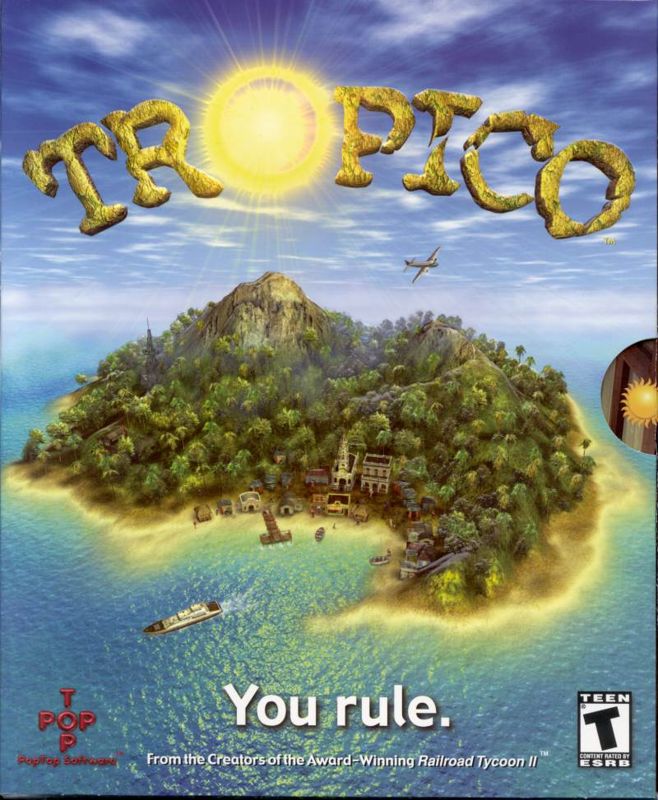
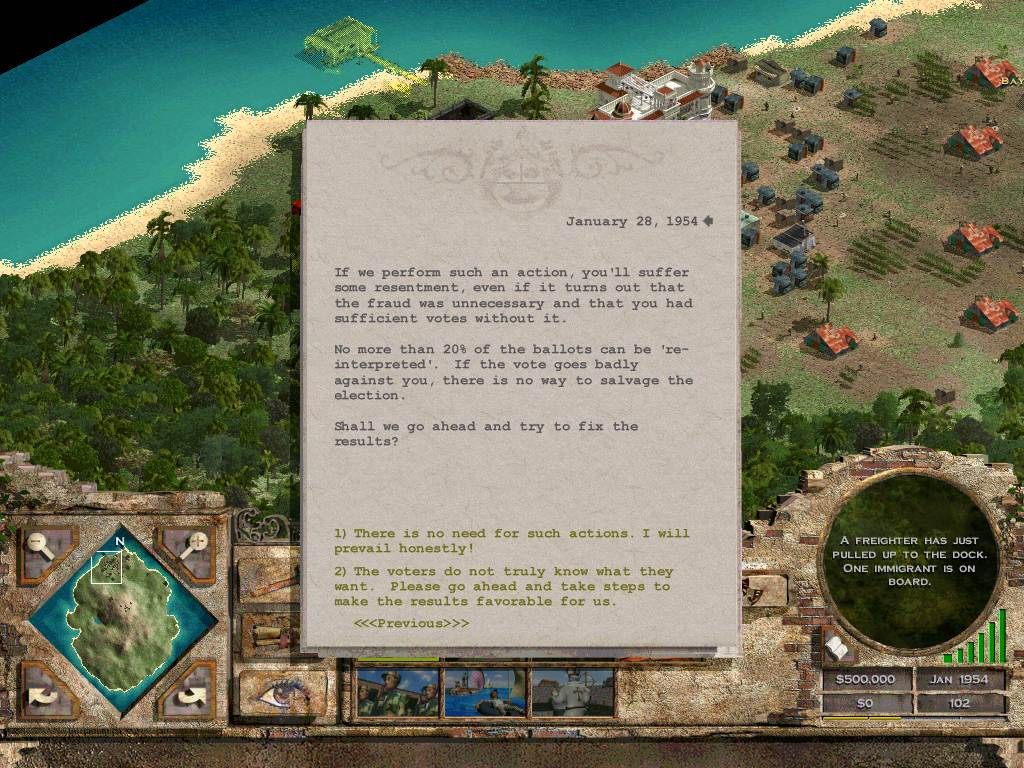
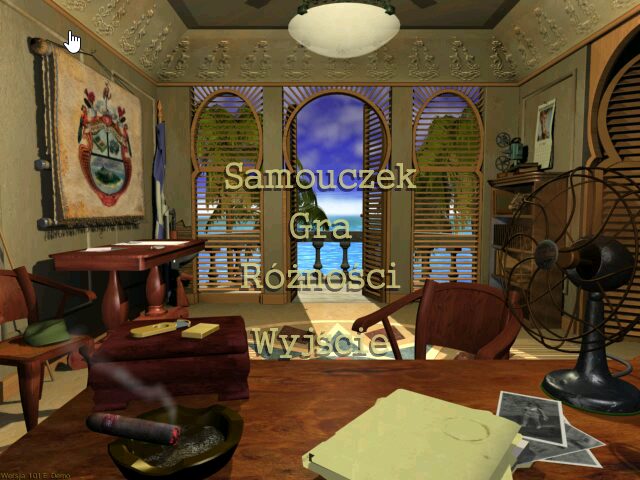
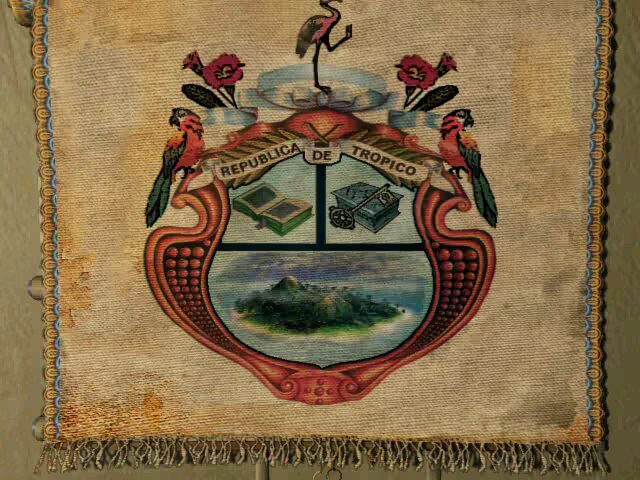
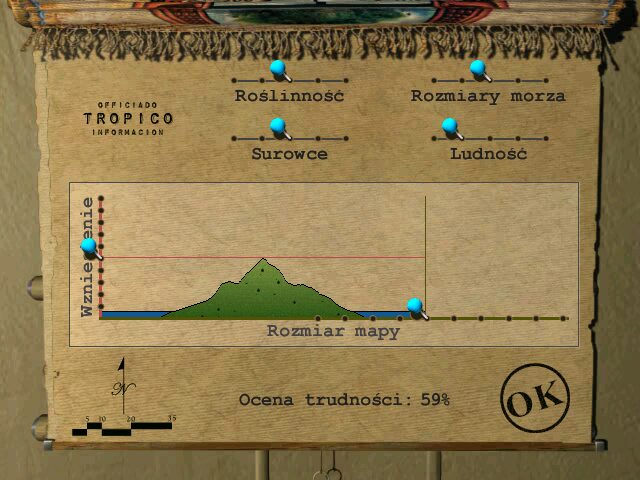
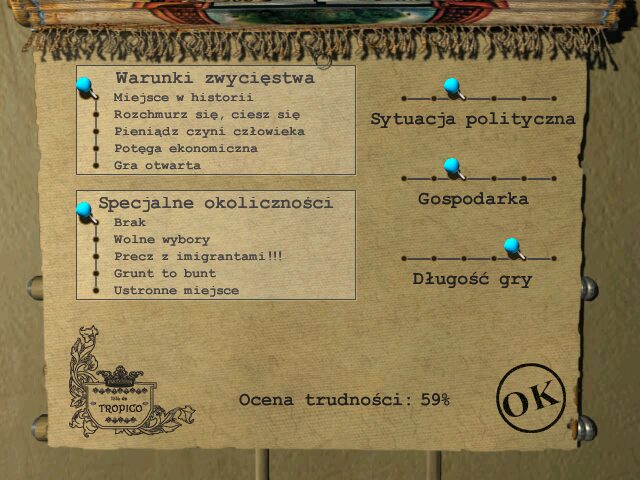

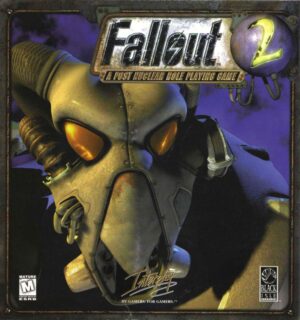

Reviews
There are no reviews yet.